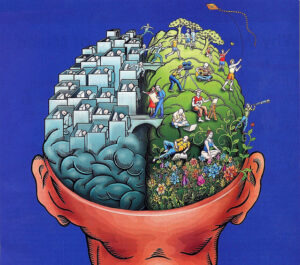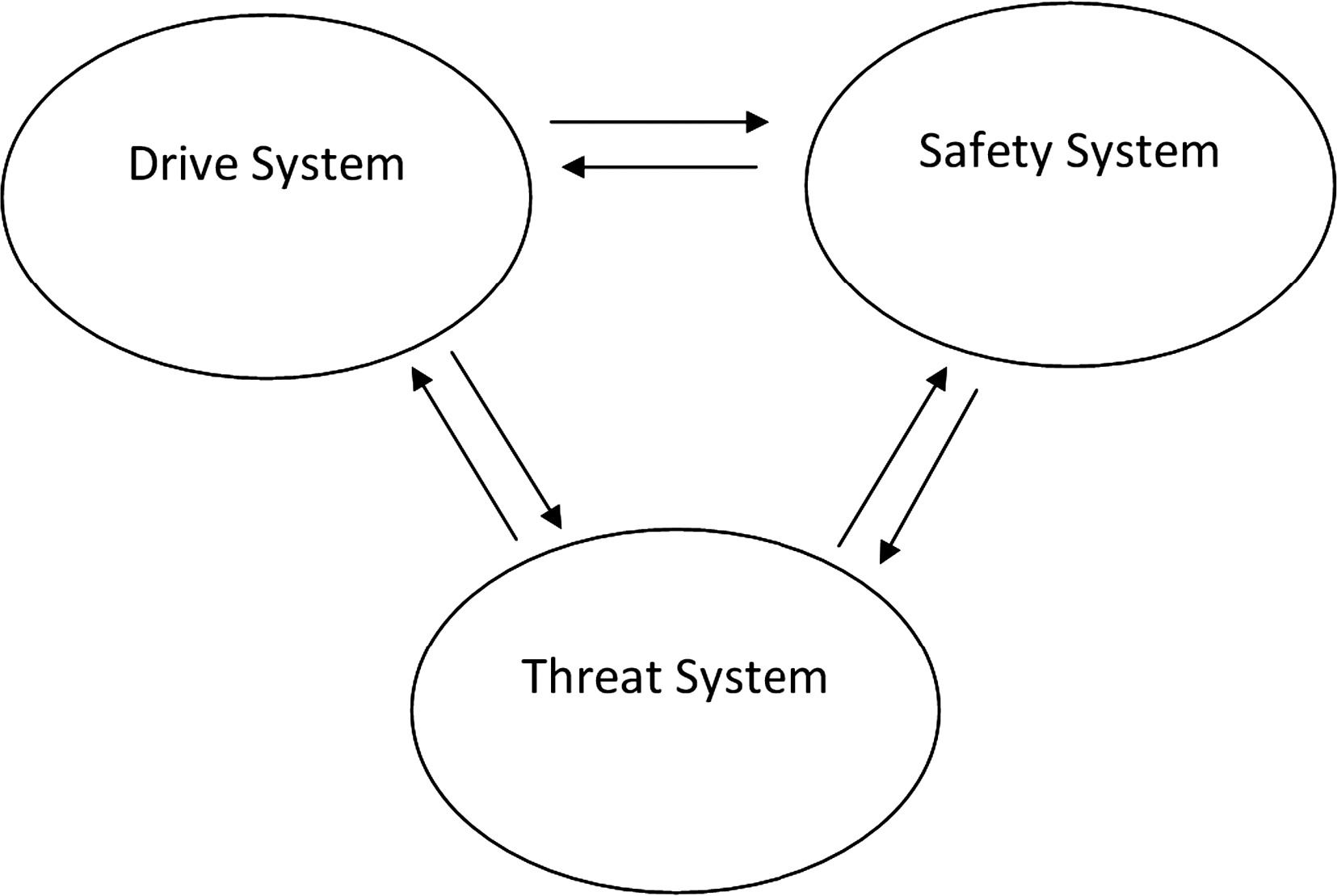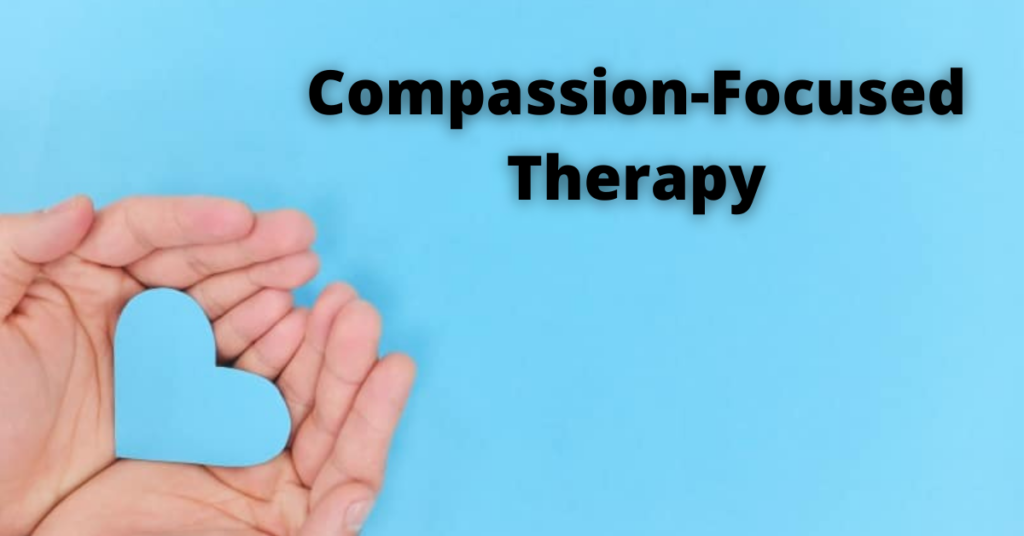Depression is a serious issue for many people, both in the United States and abroad. The World Health Organization estimates that approximately 350 million people of all ages suffer from depression worldwide (WHO). Depression can be debilitating, even fatal; it can make everyday tasks seem insurmountable. Luckily, there is help available to those who are struggling with this horrible illness. One type of therapy has been shown to be more effective than others: Compassion-Focused Therapy (CFT). CFT focuses on strengthening one’s self-compassion and sense of perspective. This blog post will explore the benefits and techniques in CFT as well as how you or someone you love can get started today!
Contents
What Is Compassion-Focused Therapy?
 Compassion-focused therapy is a relatively new form of therapy. This is based on the idea that, in order to recover from depression, people need to learn how to be compassionate towards themselves. This type of therapy focuses on increasing self-compassion. It is by teaching people how to become more aware of their thoughts and feelings. It also helps them to develop strategies for coping with difficult emotions. This therapy is often used in conjunction with other forms of therapy. These are such as cognitive-behavioral therapy or mindfulness-based therapy.
Compassion-focused therapy is a relatively new form of therapy. This is based on the idea that, in order to recover from depression, people need to learn how to be compassionate towards themselves. This type of therapy focuses on increasing self-compassion. It is by teaching people how to become more aware of their thoughts and feelings. It also helps them to develop strategies for coping with difficult emotions. This therapy is often used in conjunction with other forms of therapy. These are such as cognitive-behavioral therapy or mindfulness-based therapy.
Different Forms of Compassion Focused Therapy
These are some of the most common forms of compassion-focused therapy:
Self-Compassion-Focused Therapy (SCFT)
This was developed by Kristin Neff and Christopher Germer. SCFT is based on the idea that self-compassion involves three components: mindfulness, common humanity, and kindness/encouragement. The goal of this type of therapy is for people to become kinder towards themselves. This is when they are experiencing difficult emotions or thoughts. It is so that these emotions don’t lead to problematic behaviors. These are such as drinking alcohol excessively or engaging in risky sexual behavior.
Mindful Self Acceptance Approach (MSAA)
Developed by Steven Hayes et al., MSAA encourages people with depression to examine their negative automatic thoughts and feelings without trying to change them; this approach also encourages people to consider acceptance of these thoughts and feelings as a way of coping with them. Mindfulness is considered an important aspect of this type of therapy because it helps the client develop greater awareness, both in terms of understanding how their emotions are affecting them and becoming more aware of what they need from themselves or others in order to feel better.
Compassionate Mind Training (CMT)
This approach was developed by Chris Irons et al. The goal of CMT is to help people learn how to live more compassionately towards themselves and others; You can do this through cognitive-based exercises, behavioral tasks, and meditation practices.
Transformative Compassion-Focused Therapy (TCFT)
This was developed by Christine Anderl et al. TCFT aims to help people who are struggling with trauma or addiction as well as depression. This does this by teaching people about the importance of self-compassion, mindfulness, and kindness in order to promote healing from these issues.
Working of Compassion-Focused Therapy

This therapy is based on the idea that people with depression tend to be very self-critical and negative towards themselves. This type of therapy helps to change these thoughts and attitudes by teaching people how to become more aware of their own emotions and thoughts, and by helping them to develop strategies for coping with difficult emotions.
This therapy works by helping people to recognize their own suffering, and by encouraging them to be kind towards themselves at this moment. People are also taught how to extend compassion towards others, which helps them to develop a greater awareness of others’ feelings as well as their own.
Goal of Compassion Focused Therapy

Compassion-focused therapy aims to promote a compassionate response, rather than a self-critical one.
The main goal is to increase self-compassion. This therapy also aims to help people to develop a greater awareness of their own thoughts and feelings, as well as the thoughts and feelings of others. This can help people to become more understanding and accepting towards themselves, which can lead to a decrease in depressive symptoms.
The other goal of this therapy is to help people to develop coping strategies. By learning how to cope with difficult emotions, such as sadness and anger, it can become easier for people to manage their depressive symptoms in the future.
When To Use Compassion Focused Therapy?
Compassion-focused therapy can help in a number of different contexts. People who are struggling with:
Depression
This therapy can be used in order to help people with depression develop a greater sense of compassion towards themselves when they are experiencing difficult emotions or thoughts. By doing this, it becomes easier for people to manage their depressive symptoms and avoid engaging in problematic behaviors such as drinking alcohol excessively or having risky sexual behavior.
Trauma
This therapy can also be helpful for individuals who have experienced traumatic events, whether these events occurred recently or long ago. People may find that learning how to respond more kindly towards oneself is an effective way of coping with past traumas because being kinder towards one’s own feelings helps reduce the chances that negative emotional responses will take over at any given moment. Individuals might then become less likely to engage in harmful behaviors related to the trauma in order to cope.
Addiction
Compassion-focused therapy can also be beneficial for people who are struggling with addiction. This is because individuals who are addicted often feel a great deal of guilt and shame related to their behavior; self-compassion can help to reduce these negative emotions and promote healing. In addition, learning how to be more mindful and accepting towards oneself can make it easier for people to resist cravings for addictive substances or activities.
Suicidal Thoughts
If someone is experiencing suicidal thoughts, it may be helpful to encourage them to try compassion-focused therapy. This type of therapy can help people to develop a greater sense of self-compassion and understanding, which can in turn make it easier for them to resist urges to harm themselves.
Benefits of Compassion Focused Therapy
These are some of the benefits of compassion-focused therapy:
Enhances Well-Being
This therapy has been shown to increase people’s sense of well-being and happiness.
Leads to Greater Self-Awareness
Compassion-focused therapy leads to a greater awareness of one’s own thoughts, feelings, and experiences. This can help people to manage their depressive symptoms more effectively in the future.
Increases Compassion for Others
This type of therapy also leads to increased compassion for others. People who are compassionate towards others are often less likely to engage in behaviors that could be harmful to themselves or others.
Promotes Healing from Trauma
Trauma can leave individuals feeling isolated and alone. Compassion-focused therapy can help by providing a space where individuals can share their experiences with others who understand what they are going through.
Helps To Resist Cravings
This therapy can also help people to cope with cravings related to addictions. This is because it promotes a greater sense of self-compassion, which makes individuals less likely to engage in harmful behaviors.
Side-Effects of Compassion-Focused Therapy
These are some of the side-effects of compassion-focused therapy:
May Increase Suicidal Thoughts
While this type of therapy can help people to develop a greater sense of self-compassion, it also has the potential to increase suicidal thoughts in some cases. This is why therapists and doctors should carefully monitor individuals who are trying this type of treatment so that they do not harm themselves in any way.
Requires Lot Of Effort At First
This therapy requires a lot of effort at first because many types focus on changing behavior rather than just accepting what one already does or thinks. However, once people become accustomed to the process they may find that learning how to be more compassionate towards oneself helps them cope with difficult emotions and avoid engaging in problematic behaviors such as drinking excessively or engaging in self-harm.
Increases Anxiety In Some People
In some cases, individuals may experience increased anxiety as a result of this type of therapy because it can make them more aware of their own thoughts and emotions. This is why therapists should always monitor the physical symptoms that someone might be experiencing to ensure they are not becoming overwhelmed by these feelings.
Increases Risk Of Relapse
People who are recovering from addiction may find that this type of therapy increases their risk of relapse. This is because it can make them feel more self-conscious, which in turn makes cravings for substances such as alcohol or drugs very intense at times.
Different Compassion Focused Therapy Exercises
These are some of the different exercises that are used in compassion-focused therapy:
Practicing Self-Compassion
This exercise involves practicing self-compassion by recognizing that everyone makes mistakes and has areas where they could improve. It is also important to be gentle and forgiving towards oneself, rather than being critical or judgmental.
Identifying Negative Thoughts And Emotions
In this exercise, individuals identify any negative thoughts or emotions that they are experiencing. This can help them to understand why they might be feeling depressed or anxious.
Visualizing Compassionate Presence
In this exercise, people visualize a compassionate presence such as a friend, family member, or therapist who understands what they are going through. This can provide comfort and support during difficult times.
Practicing Mindfulness Techniques
People who are participating in this type of therapy may find that mindfulness technique. These are such as mindful breathing, meditation, or yoga can be helpful. These practices can help individuals to focus on what is happening right now instead of dwelling upon the past or worrying about the future.
Identifying Self-Critical Thoughts
Individuals should avoid self-critical thoughts and try to spend time with people who support them rather than making fun of their efforts at practicing compassion towards themselves. This will make it easier for them to stay motivated throughout this process.
Creating Safe Place
People can also create a safe place visualization in their minds where they feel calm, relaxed, and happy. This is useful when individuals are feeling overwhelmed by negative feelings that make it difficult for them to cope with whatever situation they might be facing at that time.
Writing Compassionate Letter To Oneself
Individuals may also wish to write themselves compassionate letters about what is happening in their lives or how they are feeling right now. These types of exercises allow people to focus on the positive aspects of life. This is even during times when they do not necessarily feel this way.
Conclusion
Compassion-focused therapy (CFT) is a relatively new approach. This is to treat depression and is effective in reducing symptoms for many people. This type of therapy is based on the idea that self-compassion involves three components. These are such as mindfulness, common humanity, and kindness/encouragement. The goal of CFT is for people to become kinder towards themselves. This is when they are experiencing difficult emotions or thoughts, as well as developing a greater understanding of their own thoughts and feelings, and the thoughts and feelings of others. This type of therapy can help in individual or group settings. Doctors recommend to attend a minimum of eight sessions. However, the number of sessions may vary depending on the person’s needs.
If you are looking for affordable Online Counseling MantraCare can help: Book a trial therapy session


